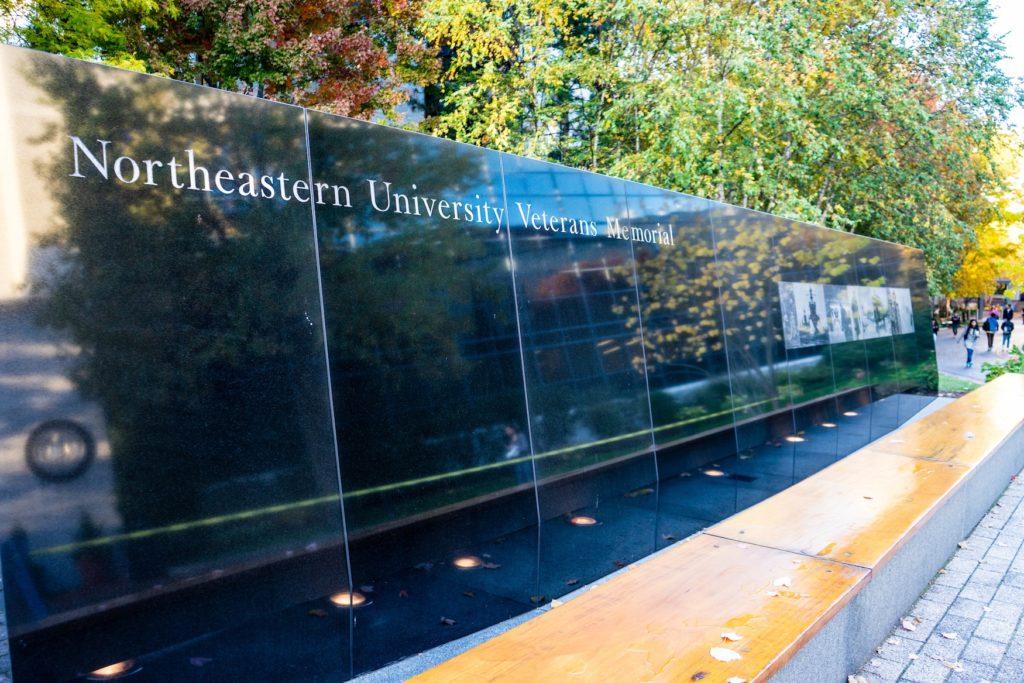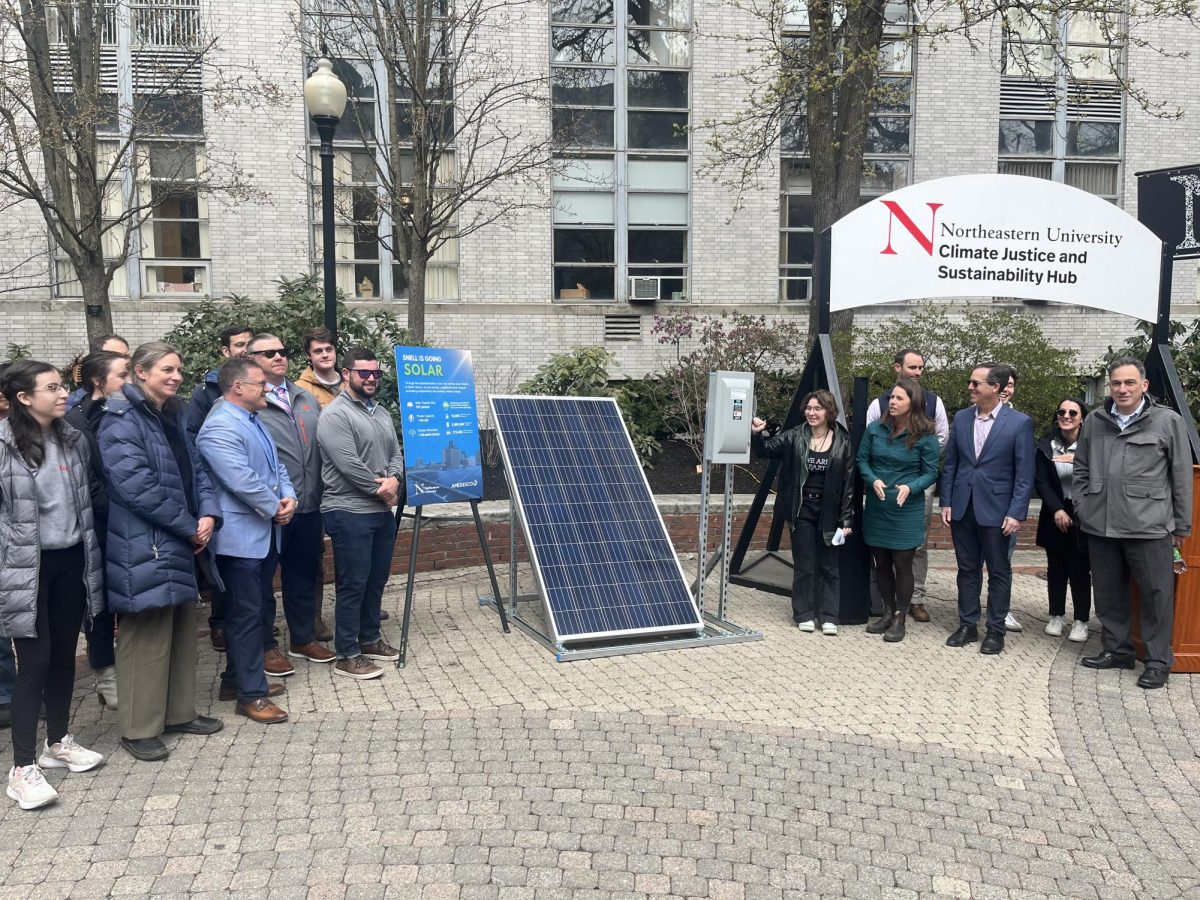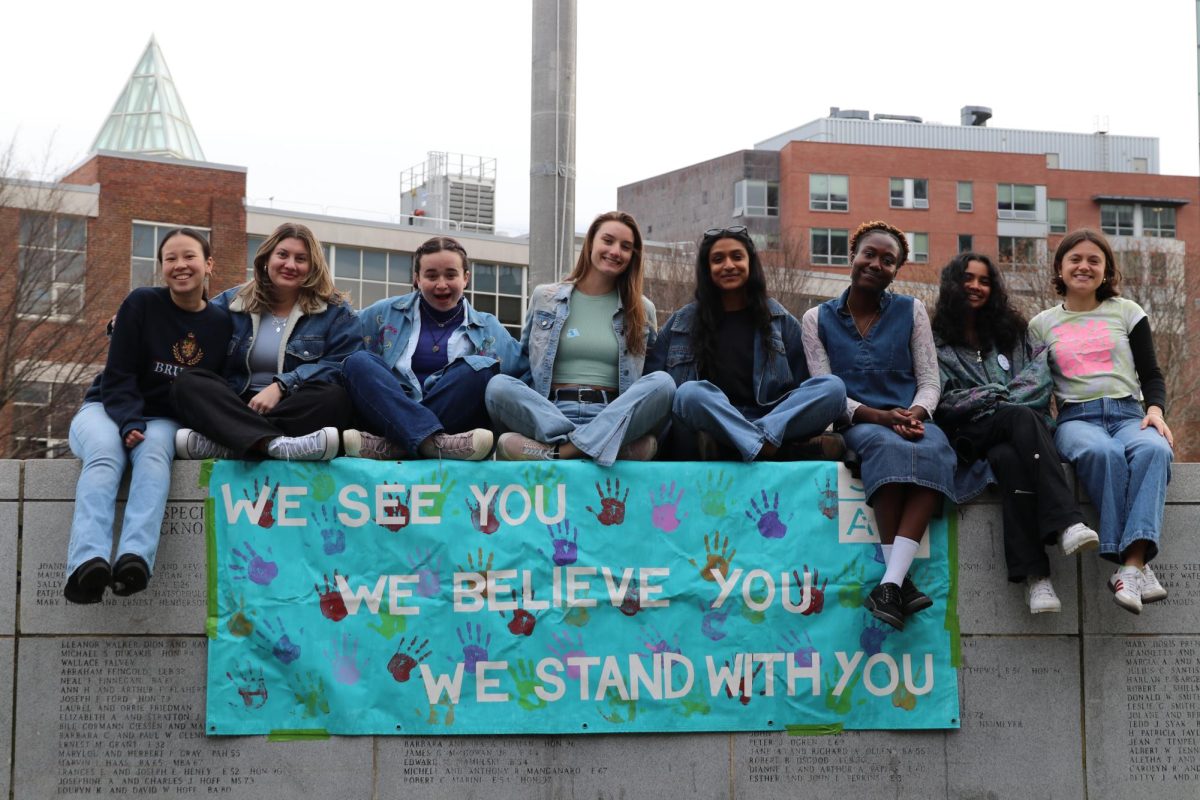By Noa Dalzell, news correspondent
John McGuinness enrolled as an undergraduate student at Northeastern University in 2013 after serving two year-long deployments in Afghanistan and six total years as an airborne infantryman in the U.S. Army. He was 27 years old, and he initially felt isolated from other 18-year-old freshmen and overwhelmed with the courseload.
“You start to doubt, ‘Are you in the right place?’ or whether you can even do it,” McGuinness, a third-year electrical engineering major said. “Because being out of school for 10 years and then trying to get a degree like electrical engineering is very difficult.”
McGuinness, who is one of more than 600 student veterans at Northeastern, said he persevered in large part due to the support network that Northeastern’s Student Veterans Organization (SVO) provided him. SVO, named Chapter of the Year by the Student Veterans of America in 2013, is a philanthropic student group that focuses on veterans advocacy and partners with the New England Center for Homeless Veterans to raise awareness for veterans’ issues.
“There’s a camaraderie when you have a whole bunch of vets that are given a purpose,” said McGuinness, who is SVO’s president. “Getting out of the military, that’s something a lot of vets feel like they’re missing. […] I don’t think I would still be here if it weren’t for its support network.”
In addition to SVO, Northeastern also offers the Center for the Advancement of Veterans and Servicemembers (CAVS). CAVS is directed by Air Force veteran Andrew McCarty and serves as an administrative center and one-stop shop for veterans’ needs, with a particular emphasis on career placement.
According to the CAVS webpage, 69 percent of veterans name “finding a job” as their greatest challenge after returning from service, and service members between the ages of 18 and 24 years old face an unemployment rate twice as high as their civilian peers.
CAVS aims to lower those unemployment rates by connecting its students with job opportunities, McCarty said.
“We thought that with the co-op, experiential learning and network of 3,000 employers, that’s where our work could have the greatest value for veterans,” he said.
CAVS also works on helping veterans navigate financial aid, which can often be a complex process. Under the Post-9/11 GI Bill, military members who served after Sept. 10, 2001 can receive tuition assistance, monthly housing allowances and stipends for books and supplies. The bill fully covers in-state tuition for state schools, and up to $21,084.89 for private universities, according to Vets.gov.
The Yellow Ribbon program, a provision of the Post-9/11 G.I. Bill, is a federal program that provides funds for the remaining tuition costs for private universities that choose to participate. Northeastern invested $2 million into the Yellow Ribbons program, which allows 252 veterans to enroll at little to no cost each year, according to the university’s website. However, not all student veterans qualify for the program, as one major requirement is that they served for at least three years. To fill in these gaps, CAVS developed a number of additional financial aid programs, McCarty said.
“When I first got accepted, I was totally lost,” McGuinness said. “Then I got in contact with Andy [McCarty], and it was clear as day. He was like, ‘This is what you need to do, we’ll take care of you.’ That was awesome.”
CAVS also offers student veterans access to a wide range of mental health resources, McCarty said. For one, CAVS works with the Home Base Program, which helps veterans heal from the “invisible wounds” of war such as post-traumatic stress disorder and traumatic brain injury. In addition, McCarty said veterans can make use of mental health resources that are available to all Northeastern students through the University Health and Counseling Services.
Northeastern recently added the Veterans of Foreign Wars (VFW) post on Oct. 24. VFW is a national organization with 1.7 million members and 7,400 nationwide posts, and is open to all veterans that have served in foreign operations. The post, commanded at Northeastern by U.S. Marine Corps veteran and senior psychology major Max Spahn, serves as an advocacy group for veterans’ issues such as housing, unemployment and access to education.
“We’re doing everything right,” Spahn said. “We are number one in the state, hands down, and there really shouldn’t be any question about that.
McCarty said Northeastern has a history of being an elite option for student veterans. The university partnered with the federal government throughout both world wars and established its Reserve Officer Training Corps (ROTC) program in 1950, which was the largest in the country at the time.
After the unpopularity of the Vietnam War, most schools in the Greater Boston Area, with the exceptions of Northeastern and the Massachusetts Institute of Technology, cut their ROTC programs, McCarty said. But recently, with the Vietnam saga a distant memory, McCarty said other schools have tried to recruit members of Northeastern’s ROTC.
“Our ROTC have come out and said, ‘Remember that thing during Vietnam, when we weren’t welcome on your campus? Well, we’ve got a long memory, so we’re happy at Northeastern,’” McCarty said. “They felt like the university stood by them even though it wasn’t a popular conflict.”
Photo by Lauren Scornavocca














